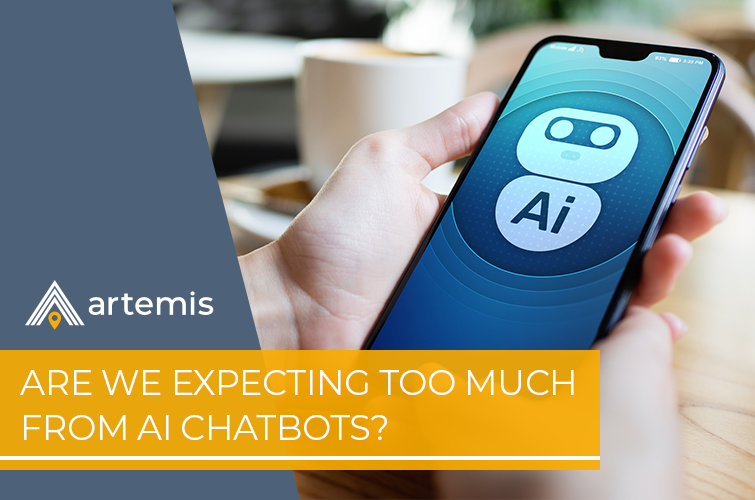Are we expecting too much from AI chatbots?

Generative AI chatbots are all the rage nowadays. OpenAI’s groundbreaking chatbot, ChatGPT, has paved the way for newer renditions, not least Bard, Google’s answer to the innovative Microsoft tool.
While we can expect the tech behemoths to refine and optimise their newest products as they grow in exposure, popularity and accuracy, one pertinent question remains: Are we expecting too much from these tools? Many people fear that these technologies will begin to slowly replace human workers across industries.
On the one hand, it’s hard to ignore their ability to generate responsive content quickly. For time-starved marketers that struggle to write engaging copy, ChatGPT or Bard can, at first glance, be seen as something of a godsend.
If a tool can produce customer-facing content at scale in a matter of minutes, it makes complete sense to utilise this content for a website, right? After all, Google loves sites that are churning out content regularly and addressing questions and terms that people are searching for, judging by its E-E-A-T guidelines. So, more content = more rankings and more conversions, right? Not necessarily.
Long-term success in SEO and content writing involves a detailed understanding of where a business currently sits in a given market, what types of customers the company is trying to attract, and what its goals are. A business’s website and content strategy must be aligned, with organic traffic steadily built over time, establishing that site and business as a valuable source of informative, reassuring, and engaging content.
While ChatGPT and Bard’s output can be – mostly – authentic and contextually relevant, they are merely generating text based on existing and indexed search engine data. Who is to suggest that the scraped content is authoritative, verified and accurate to begin with?
Machine-based tools like these cannot capture all the intricate nuances and USPs in text, which resonate with a business target customer, in the same ways that a skilled content writer can. These AI tools cannot do the work for us, but they can make our lives easier. Much like how Excel can support accountants, or wireless drills can support carpenters, the tools assist the professions, provided you know how to make the most of them and utilise them to enhance how you work.
What these machine-based tools can do, however, is provide loose outlines and barebone structures or briefs for long-form content, something which Google and other search engines see as pertinent and a valuable ranking factor. Clearly, the content that ChatGPT or Bard dispenses based on your response has merit, but it takes the work of a skilled SEO-trained wordsmith to craft that content into something that supports its website and content strategy.
At Artemis Marketing, we take content quality seriously and are always making sure that the high-quality content we create aligns with Google’s recommendations. If you are interested in working with Artemis to deliver authentic, reputable content to your website, please don’t hesitate to contact us today.

